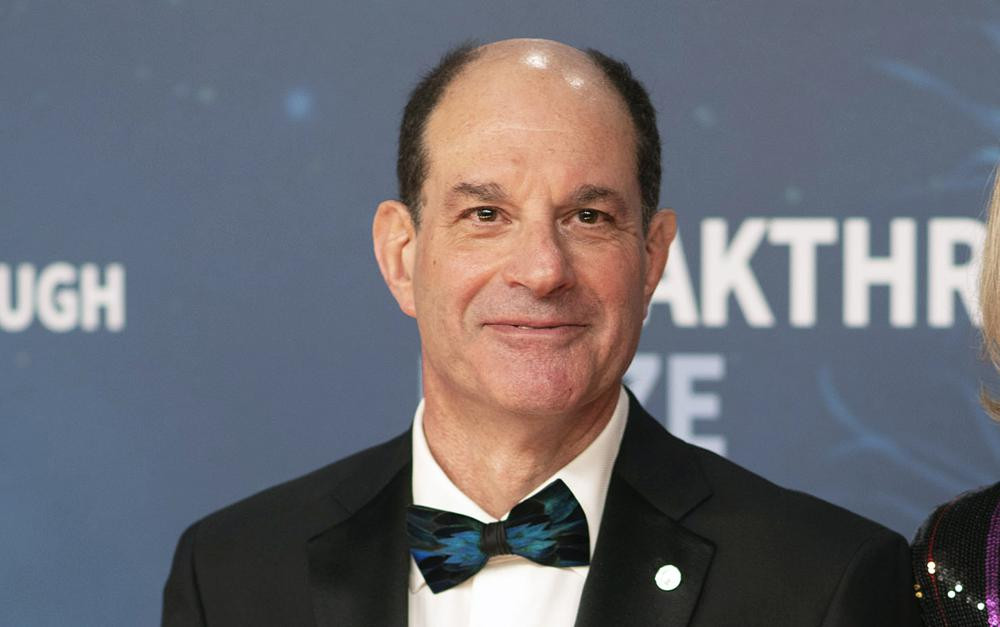Two scientists won the Nobel Prize in medicine on Monday for their discoveries into how the human body perceives temperature and touch, revelations that could lead to new ways of treating pain or even heart disease.
Americans David Julius and Ardem Patapoutian separately identified receptors in the skin as part of their work in the field of somatosensation, which explores the ability of specialized organs such as eyes, ears and skin to see, hear and feel.
Julius used capsaicin, the active component in chili peppers, to help pinpoint the nerve sensors that respond to heat, while Patapoutian found pressure-sensitive sensors in cells that respond to mechanical stimulation, the committee said.
“This really unlocks one of the secrets of nature,” said Thomas Perlmann, secretary-general of the Nobel Committee, in announcing the winners. “It’s actually something that is crucial for our survival, so it’s a very important and profound discovery.”
The committee said their discoveries get at “one of the great mysteries facing humanity”: how we sense our environment.
“How are nerve impulses initiated so that temperature and pressure can be perceived?” the committee asked in the announcement. “This question has been solved by this year’s Nobel Prize Laureates.”
Julius, who born in New York and now works at the University of California at San Francisco, said he was awakened by what he thought was a prank phone call shortly before the Nobel was announced.
“My phone sort of bleeped, and it was from a relative who had been contacted by somebody on the Nobel committee trying to find my phone number,” he said from his home in San Francisco, where it was the middle of the night.
It was only when his wife heard Perlmann’s voice and confirmed it was indeed the secretary-general of the Nobel Committee who was calling, that he realized it wasn’t a joke. Julius said his wife had worked with Perlmann years ago.
Julius, 65, said he hoped his work would lead to the development of new pain drugs, explaining that the biology behind even everyday activities can have enormous significance.
“We eat chili peppers and menthol, but oftentimes, you don’t think about how that works,” he said.
Patapoutian, who was born in Lebanon, is based at Scripps Research Institute at La Jolla, California.
The choice of winners underscored how little scientists knew about how our bodies perceive the external world before the discoveries — and how much there still is to learn, said Oscar Marin, director of the MRC Centre for Neurodevelopmental Disorders at King’s College London.
“While we understood the physiology of the senses, what we didn’t understand was how we sensed differences in temperature or pressure,” Marin said. “Knowing how our body senses these changes is fundamental because once we know those molecules, they can be targeted. It’s like finding a lock and now we know the precise keys that will be necessary to unlock it.”
Marin said the discoveries opened up “an entire field of pharmacology” and that researchers were already working to develop drugs to target the receptors they identified.
Marin predicted that new treatments for pain would likely come first, but that knowing how the body detects changes in pressure could eventually lead to drugs for heart disease, if scientists can figure out how to alleviate pressure on blood vessels and other organs.
Last year’s prize went to three scientists who discovered the liver-ravaging hepatitis C virus, a breakthrough that led to cures for the deadly disease and tests to keep the scourge from spreading though blood banks.
The prestigious award comes with a gold medal and 10 million Swedish kronor (over $1.14 million). The prize money comes from a bequest left by the prize’s creator, Swedish inventor Alfred Nobel, who died in 1895.
The prize is the first to be awarded this year. The other prizes are for outstanding work in the fields of physics, chemistry, literature, peace and economics.

